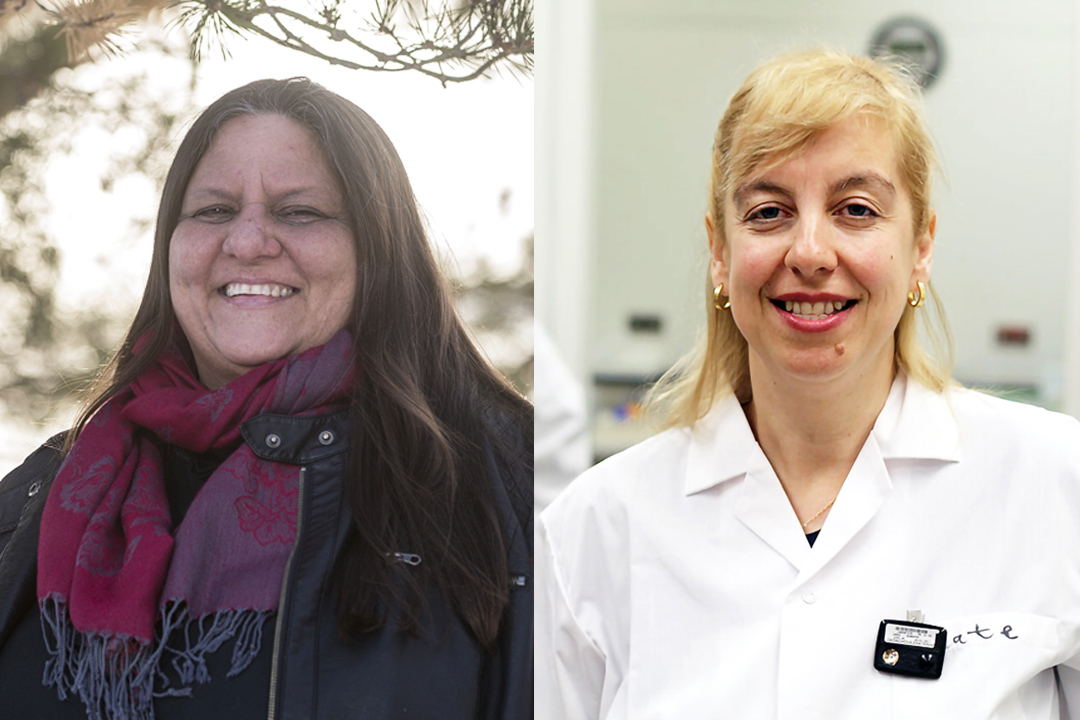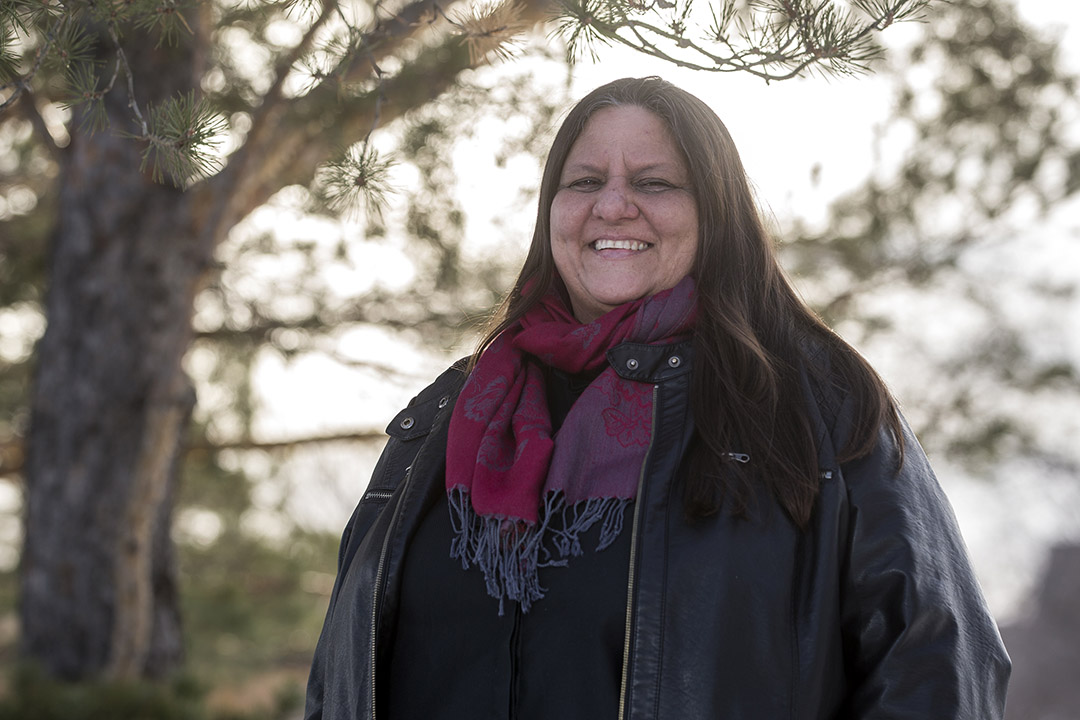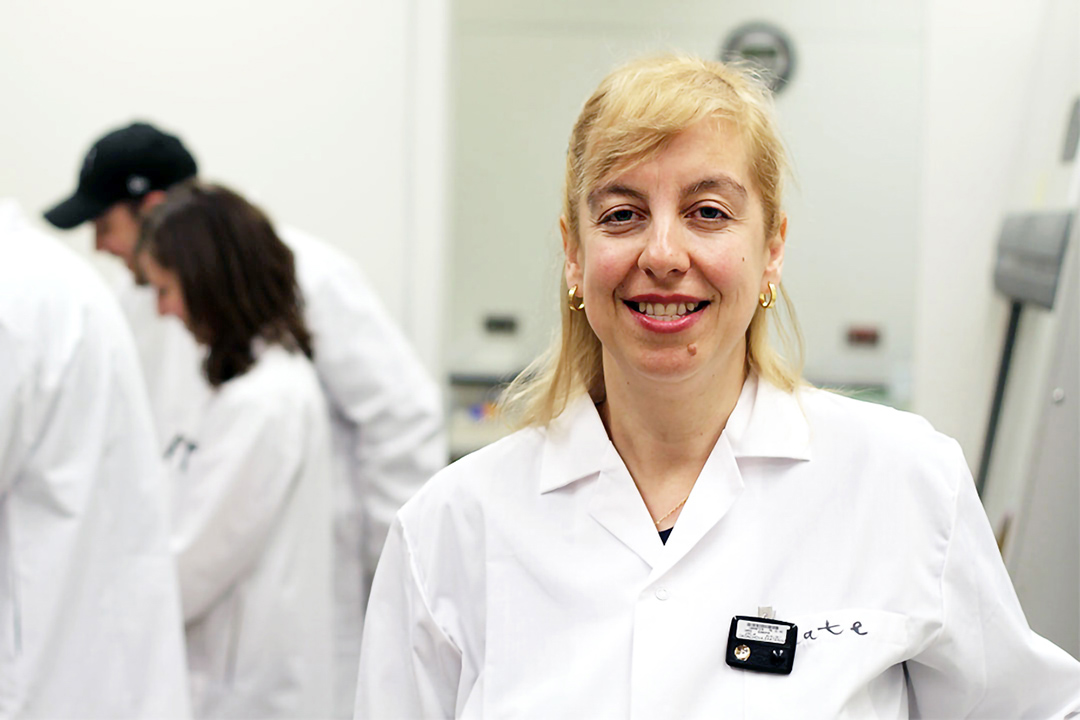
Wilson, Dadachova honoured as Distinguished Researchers
The University of Saskatchewan (USask) is honouring radiopharmacist Dr. Ekaterina Dadachova (PhD) and Indigenous educator Dr. Alex Wilson (EdD)—both internationally recognized for their groundbreaking research and scholarship—as Distinguished Researchers for 2020.
By Sarath Peiris for Research Profile And Impact“The innovative work in nuclear medicine and Indigenous engagement by these highly accomplished researchers, and their dedication to training young scientists and educators to tackle urgent health and social challenges, are contributing greatly to making our university globally relevant,” said USask Vice-President Research Karen Chad.
Wisdom of Indigenous communities

Wilson, professor in the College of Education and director of the Aboriginal Education Research Centre, has been described as a “thought leader in positive academic research that honours the wisdom of Indigenous communities.”
Her groundbreaking research on land-based education, two-spirit people, and anti-oppressive education, along with contributions to addressing social issues such as homelessness and health disparities affecting Indigenous communities, has garnered national and international recognition.
“This award signifies a shift toward validating Indigenous knowledge and the importance of community-centred engagement and research,” said Wilson. “Research has the capacity to implement transformative change, and that is why I do it.”
A member of the Opaskwayak Cree Nation, Wilson joined USask in 2007 after graduation from Harvard University—one of the first Indigenous persons from Canada to earn a doctorate at the prestigious institution.
She co-developed a master’s program in land-based education at USask that provides aspiring teachers a knowledge base in Indigenous pedagogy, restoring connections to the land that have been severed through colonization.
“Knowing that many cohorts of teachers have gone through our land-based education program over the past 10 years brings me a lot of pride,” Wilson said.
As a visiting lecturer at universities in New Zealand, Australia, Hawaii, and Norway, she has advocated for land-based education, anti-oppressive education, and transforming the binary gender bias in education.
She is working with community members to map the traditional territory of Opaskwayak, using Cree language to identify directions, landmarks and locations. The map will be used in Cree immersion programs and schools to bring together children, youth and Elders to learn through stories about medicines, plants and significant areas within the territory—serving to revive the language even as it provides traditional land-based education.
Wilson is a leader of the One House Many Nations campaign to raise awareness about the housing crisis in First Nations communities. She led a team to create a wachusko weesti (muskrat hut) prototype—solar/wind-powered houses with clean water and incinerator toilet, built with local material, and providing safe, affordable housing. Through homelessness prevention research, she is working with youth to design and build sustainable homes in First Nations.
Collaborative research important

Dadachova’s pioneering work in the combined use of radiation and immunotherapy to fight cancer and other diseases has helped enhance USask’s reputation as a leader in nuclear sciences and imaging.
A professor in the College of Pharmacy and Nutrition, Dadachova joined USask in 2016 from the Albert Einstein College of Medicine in New York.
“I want my research translated into use in hospitals and veterinary clinics, and that’s a big reason I joined USask,” she said. “Here I can collaborate with medical and veterinary researchers and nuclear scientists, and have access to a cyclotron and synchrotron.”
Dadachova holds the Fedoruk Centre for Nuclear Innovation Chair in Radiopharmacy, and brought to USask an extensive, international-calibre research program. She has been awarded more than $11 million in grants as a principal investigator, $5.4 million since arriving at USask.
“This award is a very gratifying recognition that I’m doing something interesting and useful,” said Dadachova. “It also reflects well on students and post-doctoral fellows in my lab as they build their young careers.”
Among her research successes, Dadachova’s lab pioneered radioimmunotherapy (RIT) as an effective treatment for viral infections such as HIV, as well as bacterial and fungal infections, which are often drug resistant.
She expanded RIT, which has much lower acute or long-term toxicity than current treatments such as chemotherapy, to treat melanoma, cervical cancer, and osteosarcoma (bone cancer that mainly affects children, youth and large dogs). Collaborating with USask veterinary colleagues, she is preparing to test RIT on osteosarcoma in companion dogs.
Based on the discovery at the Chernobyl site of black fungi that thrive by converting harmful ionizing radiation into chemical energy, Dadachova is studying melanin, the pigment that darkens the fungi and colours human skin. Her goal is to develop melanin-based radioprotectors for cancer patients, astronauts, and soldiers, all at risk for radiation exposure.
Dadachova, who received her PhD in physical chemistry from Moscow State University and did post-doctoral studies in Australia, has seven U.S. patents and has published more than 160 peer-reviewed articles. She has trained more than 30 students, medical residents, and post-doctoral fellows. She is an academic editor for major journals and a member of the Canadian Institutes for Health Research’s Pharmacology and Toxicology Review Panel.

